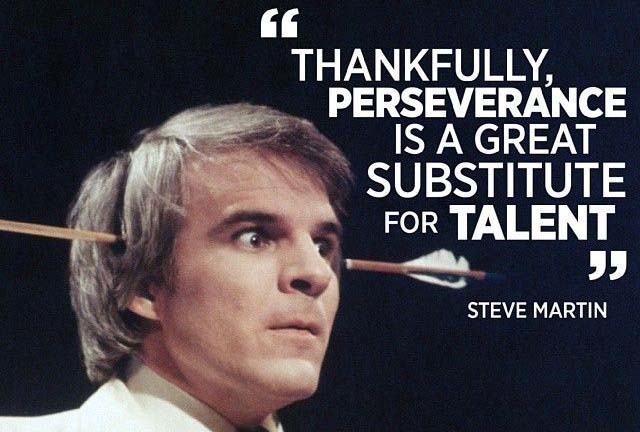 By now, it’s no secret how important networking for actors is. Today’s article is based on my own experience and the networking advice from other professionals I’ve received along the way which I hope will help you as well.
By now, it’s no secret how important networking for actors is. Today’s article is based on my own experience and the networking advice from other professionals I’ve received along the way which I hope will help you as well.
Let’s begin with a quick reality check: success in the entertainment industry has little to do with talent alone. Mostly, it’s connections. Sad, but true.
It’s going to take some time before you get your first big, meaningful job as an actor. Of course, it depends what you personally consider a “meaningful job”, but for the purpose of this example, let’s say it’s a lead role in a small independent film with a moderate budget. Unless you get really lucky, it’ll take a few years of working small gigs and networking.
No actor can avoid it. You’ll be languishing in a few boring survival jobs around the city, getting small bit parts in student and indie films, earning the minimum amount per week. And that’s if you’re one of the lucky ones. The unlucky ones will be working somewhere miles away in a small town, where there’s even less of a chance to meet industry people.
The hard part isn’t getting some acting job, or even some job vaguely connected with the entertainment industry. It’s booking your first acting gig that is a true stepping stone for acting career, with a real opportunity for advancement, exposure and especially connections.
What it takes to get that big break?
 There are only three ways to get your first meaningful acting job:
There are only three ways to get your first meaningful acting job:
- Luck and dumb luck,
- Nepotism and old connections,
- The standard path.
We’ve previously talked about luck and nepotism, but the bottom line here is that you cannot depend on number one from the above list and you already know if you can attempt number two. And if either one of these apply to you, then you might as well close this article and get on the phone with your connections.
However, most of us struggling actors are going to be stuck following the third path to build an acting career, and that means working our butts off.
Regardless of the location you’re pursuing acting, if it’s one of the major cities, then you’ll be competing with thousands of other aspiring actors for the smallest parts, and it’s going to be easy to distinguish yourself. This epitomizes the living experience of an actor in a big entertainment city.
Be a smart actor and have a game plan
It’s not all bad news for aspiring actors just starting out.
There is one factor working for you; and all of us, really. Most of the competition out there are clueless and they aren’t sure what exactly they need to do to succeed as actors. They don’t understand how important it is to have a straightforward acting career plan to follow in order to climb this ladder.
RELATED: Acting Websites: Why You Need One for Your Acting Career
What is that plan, and are there are any secret pathways one can take to boost their chance of success?
No, there’s no secret. Everything you need to do has already been said, but most actors are simply not willing to go through the process. Your goal is to keep at it consistently, actually work hard and not just pretend that you’re working hard, and brand yourself while making connections and networking like your life depends on it.
There’s nothing new about achieving success in the entertainment industry. It’s been said over and over again. Smart decisions, perseverance and consistency will ALWAYS beat talent alone.
Here’s another important point I myself always keep in mind and I’d like you to remember when you’re just starting out. You may be slightly better at your job than the fellow next to you, or maybe even your director. But keep your contempt in check and practice humility.
The key is to let go of the ego, and learn to work with and for others. This is how great connections are built and the foundation for a successful acting career is laid.
Bite your tongue when it’s best to do so, make the right choices as an actor that don’t hinder your performance and save the attitude for later. You never know when a burned bridge will prevent you from your big break.
Finally, remember that acting is NOT a race.
There’s no schedule and no deadline by when you have to “make it”. Some actors get slightly luckier with opportunities in the beginning; others will get those same opportunities a little later in their acting careers. You need to focus on yourself and your game plan.
Think in terms of milestones, not calendar days, so that you can acquire worthwhile stocks of your progress in the market of show business.
What are the “right” decisions we need to make in the beginning?
This is a good question. A decent foundation at the very beginning can speed up the progress of your acting career.
One significant arrangement you can do early on that will help to get you on your feet quicker is as soon as you move to the city, or start pursuing acting wherever you are, arrange as many informational meetings or interviews as you can.
RECOMMENDED: How to Create Your Own Website: Free Step by Step Guide
Talk to everyone you know, people from the industry and not, to find out if they know anyone at any level of entertainment business. If they do, and based on who they are, ask for an introduction.
Once you have your list of contacts within the city – be it Los Angeles, London, New York, Sydney, Berlin or any other major acting location – always keep it close. When the time comes and you have a great project on your hands that you want to promote, or you wrote a screenplay with yourself as a lead, call those people up and invite them for coffee or lunch (your treat!), or ask if you can come by their office to talk to them, or find any other way to connect.
I’ve done this two times so far. One time I got a “I’m sorry, I’m busy,” but the other connection resulted in more work. So far, it’s a 50% success rate for me.
Networking works, so remember to schmooze with people.
How to use those connections to boost your career?
Once you get a hold of people, discuss any possibilities of bringing yourself out there with the help of your own project and your contacts. DO NOT BE SHY. Making connections is very common in the entertainment industry, and you’d be surprised how many people are open to meetings if your project sounds at least somewhat intriguing and if you’re paying for lunch.
You can also schedule these types of meetings with people from the industry even if you don’t have anything going at the moment. However, you have to be sure that these people will be open to new connections, especially with newbie actors. If they are, then you’re in luck; your goal at this stage is to pick their brains, and to make it known you’re out here and eager to work hard.
These people can be anyone from an up-and-coming director or producer to sound technician, screenwriter and even fellow actors. You never know when they might inform you of an important audition or recommend you to somebody.
USEFUL: Acting for Beginners 101 – The Ultimate Guide
Furthermore, these “informational interviews” can give you invaluable insight on how others have progressed in their show business careers via the choices they made, whom they talked to, where they worked, and can help you sharpen your focus on becoming a consistently working actor.
You think these people will not waste their time with you? Wrong.
Some people won’t, that’s true. But a lot of them will. Industry folk love to talk about what they do and how much they know about show business. They will appreciate that you have shown an interest in what they do versus simply asking for a job.
Of course, everybody knows what’s going on. They do know you’re looking for projects, and if they like you, they’ll offer to help you whenever they can. Contrary to popular belief, and from my personal experience, people in the entertainment industry like to be known as someone who can help their bosses (current and prospective) and colleagues.
For instance, if someone has been asked to fill a guest part in a TV show, your timing might be perfect. If you don’t get the part, then at the very least you’ll walk away with some good conversation and insight, and perhaps two or three other contacts to follow up on. And you’d be well-advised to send a thank-you note to anyone who gives you their time.
This is how show business works, and if you want to get anywhere as an actor as fast as possible, connections and networking should be one of your first priorities.
More on the importance of networking for actors
You have probably heard the saying that “it’s not about what you know, but who you know.” Let me tell you that this rumor is false. It’s not about who you know, but who knows you.
Show business works the same way everywhere, be it London, New York, Los Angeles or any other major city.
Do you really think Colin Hanks would have gotten the lead in “Orange County” if it weren’t for his lineage? Do you really think Paris Hilton would have an agent and be considering television and film roles if she weren’t the semi-hot daughter of a hotel magnate?
RELATED: Best Networking Tips for Actors
Of course, it’s not solely who you know or who knows you. It’s mostly about getting you into the room, and then you’re on your own.
Ultimately, you will need to have the acting chops to back up all those claims about your great performing abilities. Some people may get the job thanks to a good connection, but if they’re not good at what they do, they won’t keep it. This of course is where Ms. Hilton hit an early wall.
Getting connected with industry people
Now, let’s talk some good news, and that is if you are related to Steven Spielberg or Julia Roberts, you’re pretty much set on the connections front. You can probably use blog to… I’d tell you what you could use it for if it was in a paperback form.
But even then, for the vast majority of us who are not so well connected in Hollywood, the news still isn’t too bleak. Getting connected in the film industry is ultimately a matter of clever planning, persistence and hard work.
Thankfully, this “work” can be extremely fun if you’re a social being, because it means going out to tons of parties and pubs and otherwise getting to know as many talented and ambitious people as possible, living the real life of an actor.
The opportunities in famous entertainment capitals of the world for this sort of socializing, especially for the younger set (who can more easily stay out until 3 a.m. on a weeknight and still function at their day jobs), are legion. The more people you meet and befriend, the better your chances of making those crucial connections for your acting career.
Eventually, some of the underlings you know now are going to make it over the wall in five or ten years. You might even meet some people who are already well connected. Show business is, after all, a community divided by only about two degrees of separation, as you’ll soon find out.
Actors who have done the groundwork, and made genuine connections, will have people by their side that will walk to the front door and open it for them.
How to network efficiently?
You should also be networking at any other industry jobs you can get, whether or not the job is in your chosen field. Naturally, it would help if your survival job is somehow related to the industry, more or less. For example, maybe you’re a bartender at a well known pub or restaurant in London Center, or Downtown LA.
On top of that, keep a list of every person you work with at each of show business related jobs. For example, in production jobs, staff lists are generally made available to everyone involved, which is an invaluable resource, and less writing for you.
Keep those lists of people close by. Put notes next to the names of people you work with directly to remind you who they are. Director, producer, actor, screenwriter, any kind of designer or assistant… Keep these lists at home. And make sure the people you work with remember you positively by doing an amazing job, above and beyond the call.
Another nice touch, particularly if you’re doing occasional acting gigs all over the city, is to send thank-you notes to your directors, producers, casting directors, agents or whoever might have gotten you that gig. This will put your name in their heads one last time in a favorable light, and they might just remember you at the very crucial moment of deciding whom to cast in their new big budget production.
And like your mother always told you, it’s just plain polite.
In fact, as soon as you move to the city where you plan to pursue acting career, you should consider everything you do as an opportunity to network. You never know where a potential contact or audition lead will come from.
Many actors I know got plenty of auditions from parties they attended. One of them got a big part in a major production you might have heard about that was filmed, called “Anna Karenina” with Keira Knightley.
Here’s another great story that I recently heard about an actor in Los Angeles:
His wife is a young physician and he has gotten several contacts from colleagues and patients of hers. While working as an overnight bellman at the Four Seasons Hotel in Chicago, he met an independent producer with whom he corresponded by email. Six years later he called on him when he moved to LA and they established a relationship. This actor’s best friend’s uncle went to school with a big-budget, studio-based producer. So the actor has yet to call in this favor, but someday he might. On his honeymoon, his wife and he happened to be in Cannes during the film festival. During their stay they helped promote an independent film along the Croissette. Not only was it fun for them, but it led to several contacts that they have maintained back in LA.
Do you see? The world is a crazy quilt of networking opportunities. However, if you decide to spend your honeymoon rubbing elbows instead of other parts, please make sure your significant other is on board with the idea. I don’t want to be responsible for contributing to the already too-short life span of the typical marriage these days.
All this may seem very cynical and shallow: get to know people just because they might know someone important, or be able to help you out some day to get an important role. But that’s not what I’m saying, even though this is partially true.
What I am really telling you here is that for various reasons, this is an industry built on relationships, not on grades or test scores or billable hours. Not necessarily even on results.
Insiders want to work with actors they trust and are comfortable with. Be one of those actors.
Plus, as I’ve said over and over, this is a harsh, unforgiving business. No one can make it through the toil and torment alone. Friends, particularly those who understand what it takes to be an actor and can empathize with the problems and issues pertaining to this career path, are critical to survival.
And remember: a huge part of making friends and new connections is helping them out whenever you can. It’s not just about what YOU need; it’s also about what THEY need. In fact, it’s MOSTLY about what they need, and the rest just comes as a byproduct of your genuine desire to help people.
The bottom line is that networking is the second most important thing you can do for your acting career, right after consistently working on your acting craft.
Knowing people in show business is what makes or breaks your career, and if you start from the right foot by gleaning wisdom of those who have been down the path before, you might just make it to the other side of the wall, and do it early.
How to stay connected in the industry?
 Whenever you make a connection, keep in touch. Don’t just collect business cards and store them in your drawer. Also, make sure you have your own business cards to hand out with your acting headshot and acting resume / CV on there.
Whenever you make a connection, keep in touch. Don’t just collect business cards and store them in your drawer. Also, make sure you have your own business cards to hand out with your acting headshot and acting resume / CV on there.
Every job and every person can lead to a potential audition. It’s hard work, but didn’t I say it will be? It’s totally worth it though.
Another tip I have is to keep Excel spreadsheets of personal contacts and big players in the business. Alternatively, I now use my phone more often for that, and also back everything up in my laptop.
Make sure you keep track of when you contact industry people and what your next steps should be. Smartphones are the best for this type of thing.
Keep track of all birthdays, important show credits, alma maters, family members’ names, where and when you met, and anything that will help you differentiate them from the (hopefully) hundreds of other people in your phone.
You should try to update this information as soon as you get someone’s business card or meet them at a party (just not in front of them!), so you don’t forget later on.
This seems like daunting work, but it’s a big part of an actor’s job, and a very important one too, if you really want that major part audition.
Network as often as you possibly can
If you are particularly bold, you can try making connections with people who are already established or becoming established in the film industry. But don’t just start calling people or approaching them at showcases, workshops or classes. Wait until you are ready, you have the acting chops and you have a clear game plan for your career.
You can also try waiting till you have at least some credit and training under your belt, which you can accomplish within the first few months of launching your acting career. This has been covered many times over already.
Then, before you do approach someone, know as much as you can about the person. At the very least, check them out on Google and IMDb. If possible, find and see their work and ask peers who may have worked with them about their experiences, interests, and the like. This type of research has potential to pay off greatly.
“Instead of telling the world what you’re eating for breakfast, you can use social networking to do something that’s meaningful.” – Edward Norton
Finally, when you do contact anyone in this category, tell them you’re looking for advice and ask if they’d be willing to meet you (face time is better than phone time if you can get it).
If you are extremely lucky and they are willing to give you some of their time, be focused and selective with your questions; don’t waste their time or yours by asking them which restaurants are good (we have an article on this if you’re truly curious) or where you should live (we have some advice on that too!)
Focus on the other person.
Ask them substantive questions about their creative process or what work and people in the business they admire. And be ready to answer the same questions, intelligently.
[tweetthis remove_twitter_handles=”true”]Nothing liberates your greatness like the desire to help, the desire to serve. – Marianne Williamson[/tweetthis]
Here’s the golden rule of networking for actors: NEVER ask them to give you a job, to read your script or to do anything else for you, ever.
Your goal is to have a genuine conversation and to learn about the person. That’s all it is. Just ask them about their experiences and listen. You’ll be surprised how much you can learn.
If you’re lucky and they like you, and you don’t forget to send them a thank-you note afterwards, you might get a call one day from them or someone they recommended you to, and be offered an audition.
This is how proper networking is done. It’s an accumulation of contacts, regular catching up and genuine interest in the other person. Results do not come right away, but when they do, they’re usually worth the effort and the time.
What if you’re an introvert?
If you’re not much of a schmoozer or a party person, and prefer more structured activities to make connections, you still have a number of great options.
A variety of professional organizations and the events they sponsor are good places to network, as are acting classes, showcases and workshops, volunteer opportunities, and the broader industry organizations for all types of film and theatre people.
Non-entertainment organizations, such as alumni associations, sports groups (yoga, football, running, etc.), environmental and political organizations, gaming groups, twelve-step programs and religious organizations can also be a fertile ground for making unique connections to boost your acting career.
If you’re really adventurous, try extreme sports – nothing creates a lasting bond like a near-death experience.
Avoid making enemies and burning ANY bridges
Whatever you do, don’t make enemies as an actor.
In this business, there’s really no such thing as a person who doesn’t matter. Not for long, anyway.
That assistant you’re snapping at today might be the high-powered agent you want tomorrow. Moreover, the industry is so fluid that executives often find themselves reporting to (or at least forced to work civilly with) former subordinates when they change jobs. This rule applies even when you work at jobs outside of the industry.
The bottom line here is to nice to everyone at all times.
Plus, like your mother always said, being nice is just the right thing to do. You never know who is going to be someone someday. Better to have a neutral relationship or no relationship than enmity.
[tweetthis]The currency of real networking is not greed but generosity. – Keith Ferrazzi[/tweetthis]
This goes for your romantic life, too, if you’re getting involved with partners from your career path. No matter how much you loathe your boyfriend or girlfriend for cheating on you, make it an amicable split. That vile, untrustworthy, freakish jerk might someday be running a studio, or at least an agency. They can also screw you over in many other different ways, especially if they have some important connections.
As you should already know, acting career is a marathon, not a sprint, so you have to look into the future. While living only in present is great, cool and romantic – it doesn’t really work this way.
If you snap at someone today, tomorrow they might fire you from that big budget gig you worked so hard to get. Keep this in mind and stay focused on your ultimate goal. Let go of the ego and try to keep all the bridges intact.
Is this “fake” way the only way to the top?
 Some may argue that this “networking approach” feels fake, insincere and there’s no art to it. And you’re right. But are you trying to get into Hollywood for art? If your goal is less ambitious, and you only want to act, then your local community theater can serve that purpose very well and you won’t have to do any of this.
Some may argue that this “networking approach” feels fake, insincere and there’s no art to it. And you’re right. But are you trying to get into Hollywood for art? If your goal is less ambitious, and you only want to act, then your local community theater can serve that purpose very well and you won’t have to do any of this.
However, if you crave success, fame and big projects, then this is what you have to do. This is what everybody else has been doing.
Finally, art is subjective.
You’ll never get ten people to agree what the best films are. So there can’t be an objective “good” when it comes to taste. But you can get people to agree on what is professional, so never fail in that respect.
Here are some specifics on how to be a professional actor: proper spelling, logic, respect, empathy, reliability and consistency. There’s no “art” in there and there’s no pretentiousness.
Also, remember that “art” gimmicks are super-high risk. They might work, but they are much more likely to flag you as a pathetic amateur.
When you start out as an actor, it’s helpful to view the entertainment industry like an art community. If you want to act in obscure, odd, ultra low budget art house films that will never be seen by anybody, that’s your prerogative.
To me, that’s like a sculptor who makes five-inch sculptures with his own clay and hides them in his basement. There’s nothing wrong with that, but if you want to make a thirty-foot sculpture, you’d better find a benefactor. You have to give the investors what they want. And an actor’s professionalism goes a long way.









